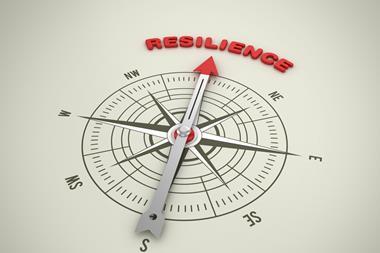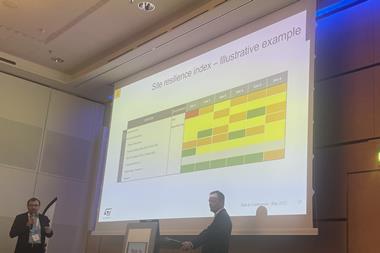New data from FM Global ranks countries for resilience, here’s how risk managers can use the index to help improve business decision-making
Denmark is the most resilient country in the world, according to the latest FM Global resilience index.
The index ranks the resilience of 130 countries’ business environments based on economic, risk quality and supply chain data.
Despite, the ongoing war between Russia and Ukraine, a cost of living crisis, and the aftershocks of the pandemic, European nations ranked well for resilience.
In fact, the top ten was 70% European.
Other European countries in the top ten include Luxembourg (3), Germany (4), Switzerland (5), Sweden (8), Finland (9) and Austria (10).
The United Kingdom was in 13th place, just behind Belgium and Norway.
The most resilient nations
FM Global’s data, both proprietary and aggregated from respected third parties, places these 10 countries/territories atop this year’s Resilience Index:
- Denmark
- Singapore
- Luxembourg
- Germany
- Switzerland
- United States 3 (Central region)
- United states 1 (East)
- Sweden
- Finland
- Austria
The bottom ten are:
- Lao PDR
- Guinea
- Honduras
- Mozambique
- Mali
- Madagascar
- Chad
- Ethiopia
- Venezuela
- Haiti
What does it mean for risk managers globally?
The warming climate, a vulnerable economy, and geopolitical risks are powerful forces affecting business performance.
These concerns weigh heavily on risk managers, who need to help c-suite executives understand the implications for their companies.
However, the free-to-access resilience index data can provide risk professionals with valuable insights particularly when it comes to making business decisions.
“When potential disruptions loom, a resilient company can mitigate losses of revenue, market share and growth”
The data can help inform leaders on where to locate facilities, invest in risk mitigation, cultivate markets, source supplies and form strategic partnerships.
Used well, it could be an essential tool for site selection, supply chain design and market targeting.
FM Global says that several global organisations have already integrated the index into their site-selection/enterprise risk management software for strategic decision-making.
“Objective data should support most major business decisions,” said Pentti Tofte, staff senior vice president, data analytics, FM Global.
”When potential disruptions loom, a resilient company can mitigate losses of revenue, market share and growth – losses that may have been unrecoverable.”
What next?
The report identifies several factors that risk managers should be considering when it comes to establishing the resiliency of their sites and operations.
- Climate change: Regions with greater wind and flood exposures and weaker building codes tend to be less resilient
- The economy: Productive countries (those with higher GDP per capita) generally have more resilient business environments. Health expenditure per capita, political risks, energy intensity and high urbanisation rates also affect resilience
- Geopolitics: The world is still feeling the effects of global supply chain disruption, which has fuelled moves toward reshoring. Companies concerned about a government’s stability can consult the resilience index’s political risk ranking.
- Energy: Energy intensity is the resilience driver that saw the most movement overall this year.
- Seismic risk: Tragedies such as the 2023 Turkey–Syria earthquake disaster highlights the importance of enforcing building codes and standards.
The report said: “When an organisation becomes concerned about business risk, there are two ways, broadly speaking, to strengthen resilience: stay out of harm’s way and mitigate one’s risk through investments in property protection and business continuity.”




















No comments yet